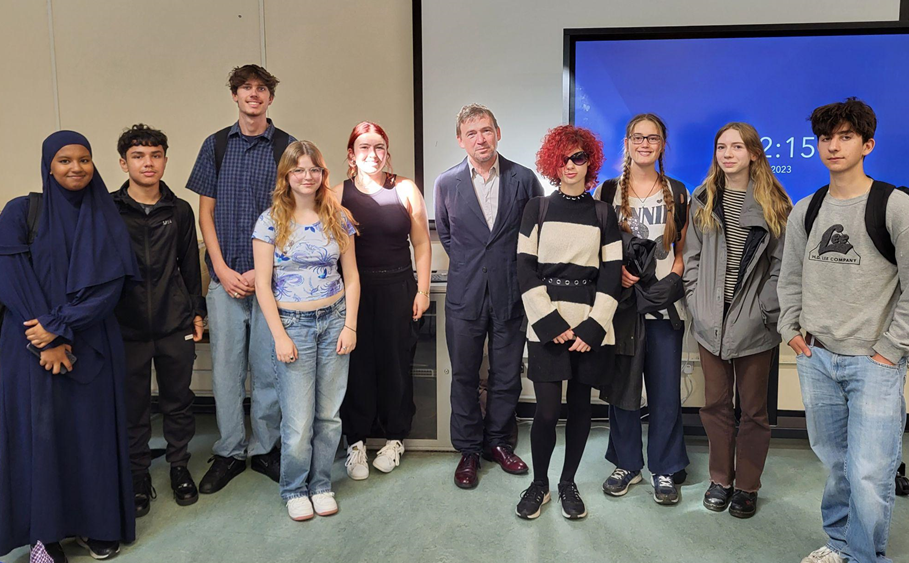Assembly Speaker - 25 September
David Nicholls, author and screenwriter
Last week David Nicholls, the renowned author and screenwriter, spoke to Year 13.
When Nicholls was 16 he first began thinking about university, which was new to him as none of his family had gone to university. Although he was always interested in drama and literature, he initially believed he should pursue the sciences as there were many careers he could get into. However, he loved drama so much he changed his mind and went to Bristol to study English and drama. He loved the idea of creativity and being able to absorb literature in a brand-new way.
After graduating, he was an actor for most of his 20s but was frequently unemployed although he did secure a post at the National Theatre as a supporting actor. Writing was yet to be something he aspired to and was unsure how writers worked or got into the profession.
At that time, most theatres had literary departments, where he began to work as a script reader of unsolicited scripts. He began to enjoy this more than the acting. Script editing was then a role he was introduced to. Doing this, he learnt how stories and substories can be successfully managed and translated. He began working with his friend to create an original script, which was then produced as a movie. This gave him experience as a producer as well as a creative. Following this experience, he wrote a sitcom about his life in his 20s and while this was never made, it was also a valuable experience.

Nicholls’ first TV show was "Rescue Me", which was aired on the BBC. The viewing figures unfortunately decreased during the run, meaning that a second season wasn’t commissioned. Wanting a new challenge, he began his first novel, Starter for Ten, channelling his own experience of university. This was his first book deal and it was subsequently made into a film.
He now finds himself writing TV scripts and novels. He's written 6 novels and hours of TV. His highly successful novel One Day is currently being produced as a series for Netflix. He highlighted that a career as a screenwriter and novelist is varied with highs and lows, such as teamwork versus solitary work plus lots of time editing and taking criticism of your work.
TV is a group activity and a script is more of an instruction manual than a piece of literature. The product only exists if it's made, and so he found there wasn't as much freedom and creativity as when writing one's own novel. The TV and film industry can be frustrating as not all scripts get made and not all will work.
Nicholls has found that literature and TV are both always evolving, and it can be challenging to navigate a career due to the complexity of both industries. While the profession can be stressful and lonely, writing can also be freeing and should be something you feel passionate about. Being able to observe and read like a writer rather than a viewer can be valuable. An aspiring writer should read widely and critically. It's also important to be patient and critical with your work. It is said that writing is rewriting.
Nicholls finally added that it's important to be confident in yourself and work. Writing for yourself is liberating but the career path isn't likely to be linear. He encourages young people interested in writing, screenwriting and film-making to try things out and be creative but also to take a deep breath and show their work to others
We thank him for taking the time to talk to us.
Lara, Senior Prefect